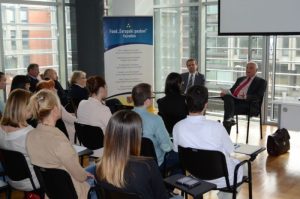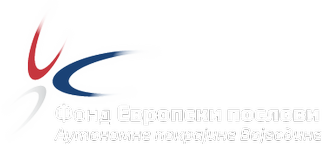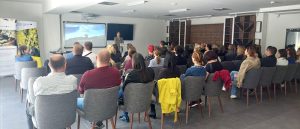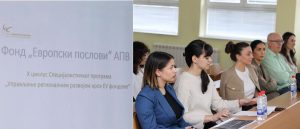Lecture of Univ. Doz. Dr. Franz Schausberger and Predrag Novikov, Head of the Vojvodina European Office in Brussels within the Programme “Management of Regional Development through EU Funds“
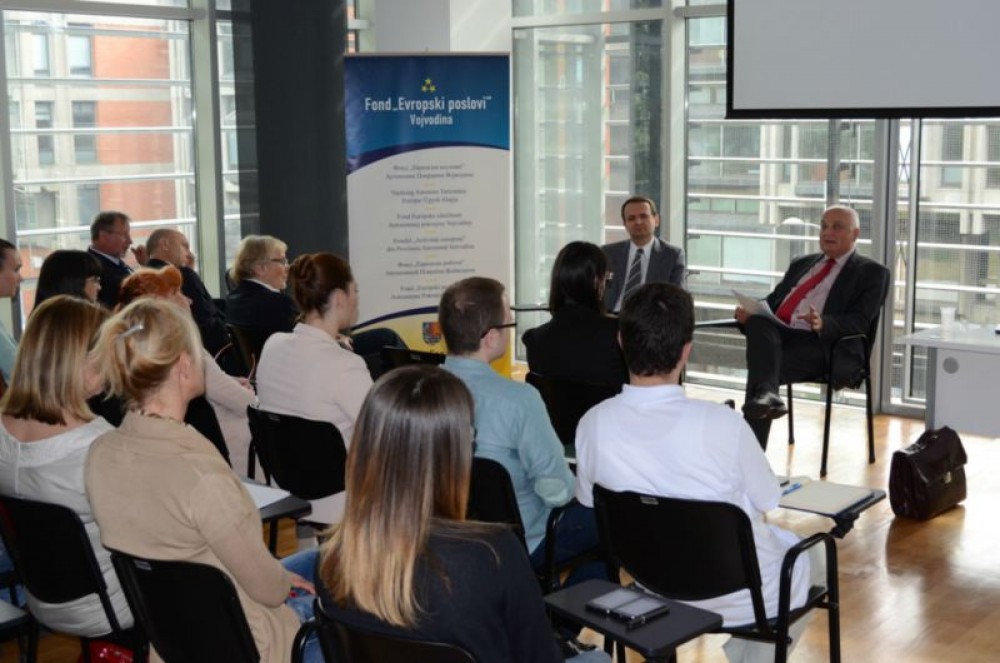
Within the framework of the Specialised Programme “Management of Regional Development through EU Funds“, Prof. Dr. Franz Schausberger, Chairman of the Institute of the Regions of Europe (IRE) and Delegate of the Region of Salzburg to the Committee of the Regions, and Predrag Novikov, Head of the Vojvodina European Office in Brussels held a lecture at the main building of the University of Novi Sad on 15th May 2015.
The topic of Prof. Dr. Schausberger’s lecture was regionalisation and decentralisation, as well as the role of the regions and local self-governments in the field of European integration. Prof. Dr. Schausberger emphasised the importance of involving the representatives of local and regional levels, in addition to the national one, into the negotiation process with the European Union. In addition, he drew attention to the fact that regionalisation required a special political culture, mutual understanding, trust and will, as well as a system of cross-border cooperation and cooperation at the local level. Predrag Novikov, Head of the Vojvodina European Office talked about his work in Brussels, about the importance of being present at the place where decisions were made and about the importance of regional networking.
The specialised life-long learning programme “Management of Regional Development through EU Funds“ is being implemented by the European Affairs Fund of AP Vojvodina in cooperation with the University of Novi Sad, whereas the complete Programme is funded by the Autonomous Province of Vojvodina. The overall objective of the Programme is information dissemination on EU processes and regional policies, as well as on the importance and opportunities for accessing EU funds, so as to obtain an adequate analysis of regional development in the framework of EU integration, with the aim of making relevant decisions and bringing conclusions in terms of project management and programme and project documentation development in the EU accession process. The Programme is aimed at the employees of local self-government units, provincial administration, development agencies, public utility enterprises, educational and cultural institutions, civil society organisations, small and medium-sized enterprises and entrepreneurs, faculties, research institutes and other institutions that may be beneficiaries of EU funds.
